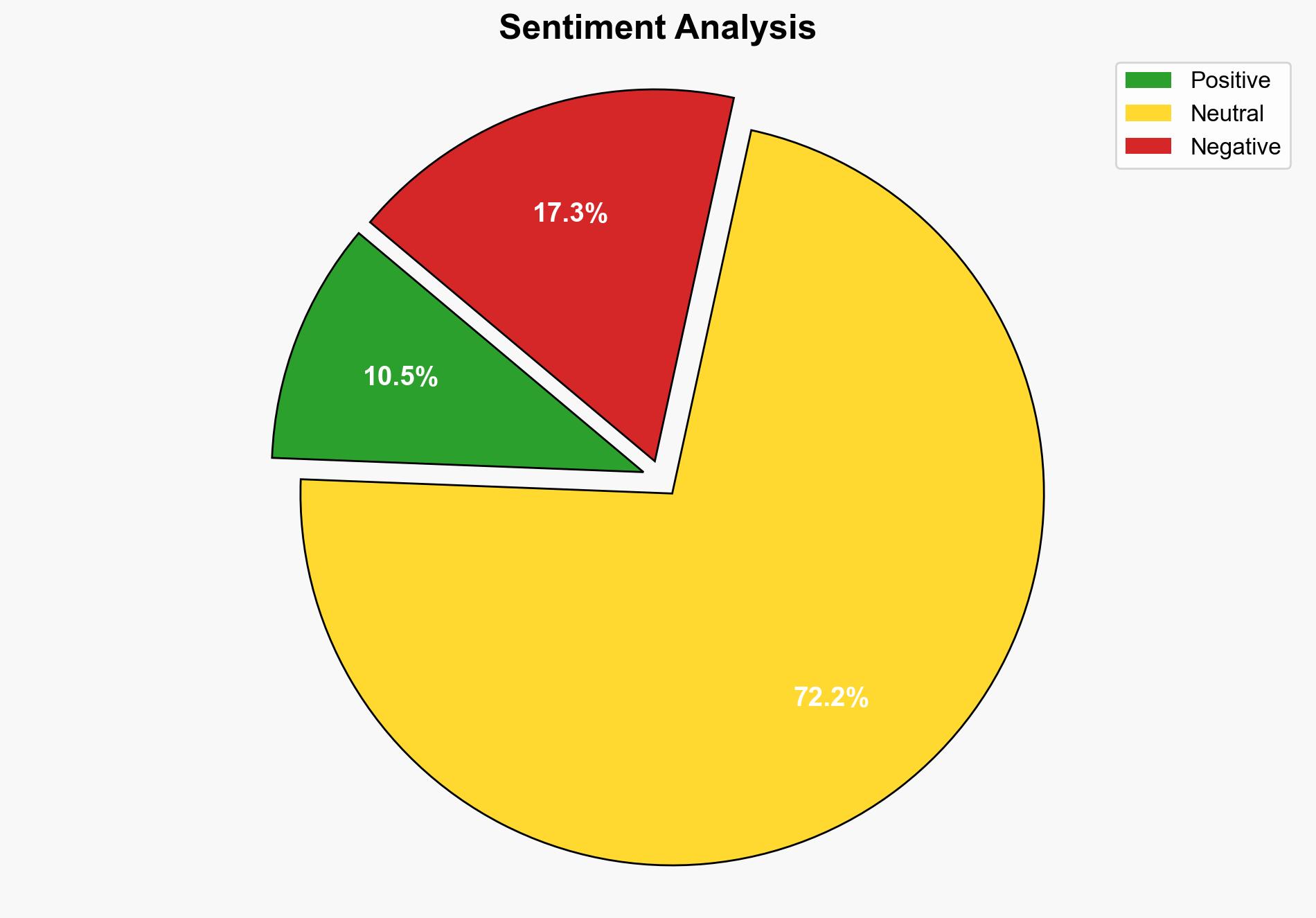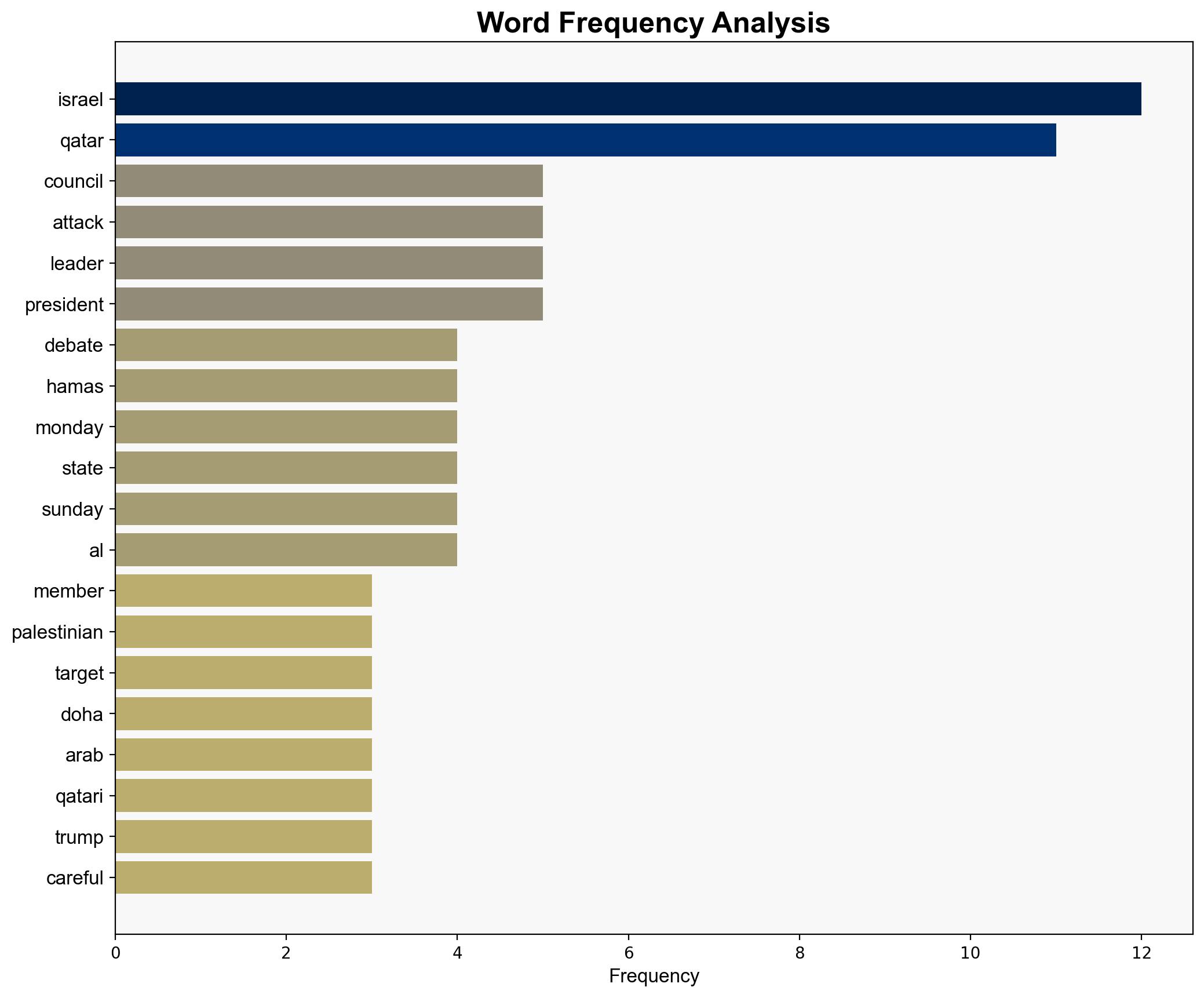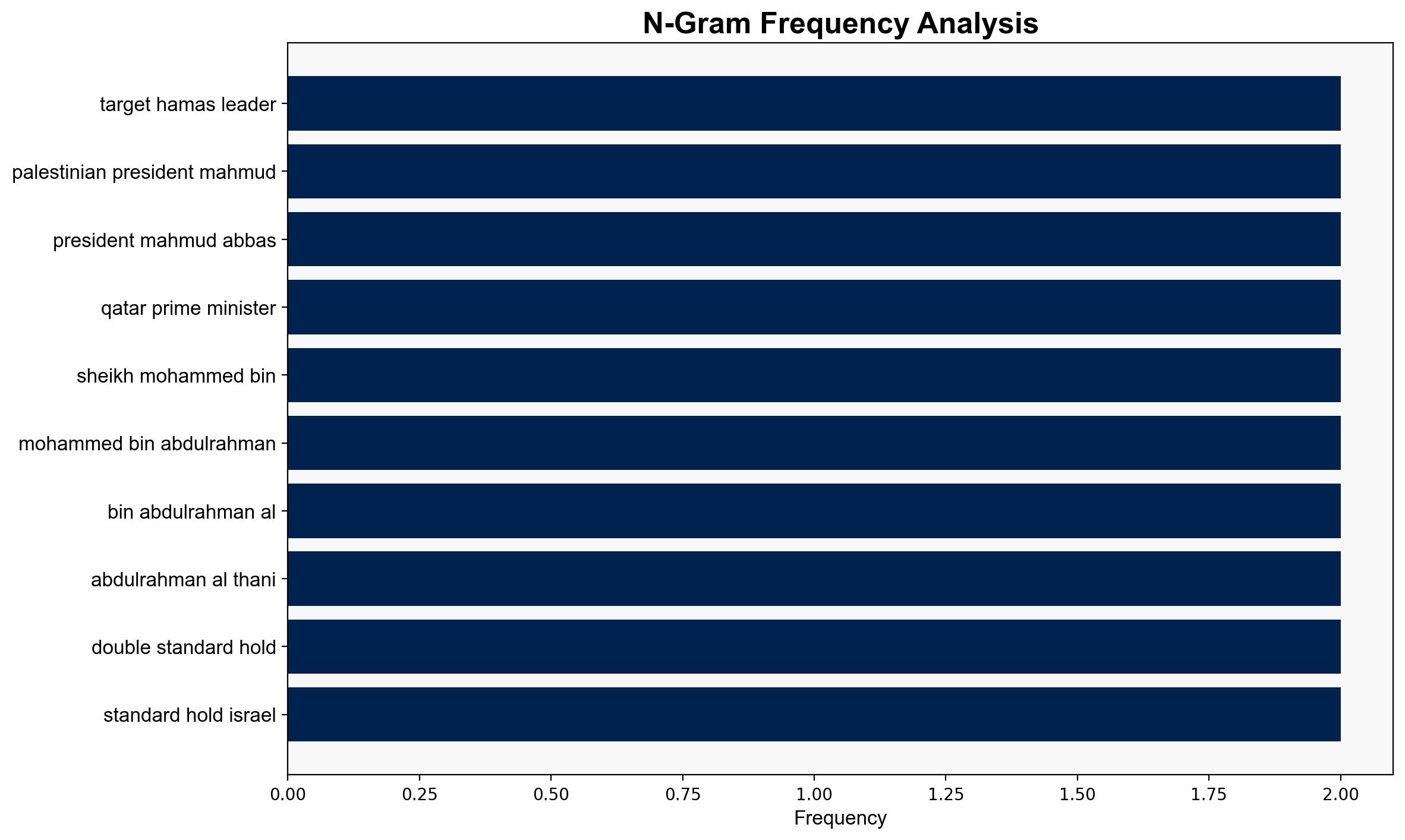UN rights council to debate Israel attack on Qatar Tuesday – Hurriyet Daily News
Published on: 2025-09-15
Intelligence Report: UN rights council to debate Israel attack on Qatar Tuesday – Hurriyet Daily News
1. BLUF (Bottom Line Up Front)
The most supported hypothesis is that the UN debate is a strategic move by Qatar and its allies to increase diplomatic pressure on Israel and highlight perceived double standards in international responses to military actions. Confidence level: Moderate. Recommended action: Monitor developments for shifts in regional alliances and prepare for potential diplomatic fallout or escalation in tensions.
2. Competing Hypotheses
1. **Hypothesis 1**: The UN debate is primarily a diplomatic maneuver by Qatar and its allies to pressure Israel and highlight international double standards, leveraging the attack to gain political support and solidarity among Arab and Islamic nations.
2. **Hypothesis 2**: The debate is a genuine effort by the UN and its member states to address and potentially de-escalate the conflict between Israel and Hamas, with a focus on preventing further humanitarian crises.
Using ACH 2.0, Hypothesis 1 is better supported due to the involvement of key regional players and the emphasis on international double standards, as well as the political context provided by Qatar’s hosting of military bases and its diplomatic engagements.
3. Key Assumptions and Red Flags
– **Assumptions**: It is assumed that Qatar and its allies have sufficient influence within the UN to sway the debate’s outcome. Another assumption is that the international community’s response to Israel’s actions is inconsistent.
– **Red Flags**: The absence of direct statements from Israel regarding the attack and its motivations could indicate a lack of transparency or strategic ambiguity. The potential bias in reporting from regional sources should also be considered.
4. Implications and Strategic Risks
– **Geopolitical**: Increased tensions between Israel and Qatar could lead to broader regional instability, affecting alliances and economic ties.
– **Economic**: Potential sanctions or economic measures against Israel could impact regional trade and investment.
– **Psychological**: Heightened tensions may exacerbate public sentiment and lead to increased support for radical groups.
– **Cascading Threats**: Escalation could trigger retaliatory actions from involved parties, leading to a wider conflict.
5. Recommendations and Outlook
- Engage in diplomatic dialogue with both Israel and Qatar to understand their positions and intentions.
- Prepare contingency plans for potential escalation scenarios, including economic sanctions or military responses.
- Monitor regional alliances for shifts that could indicate changes in support or opposition to Israel.
- Scenario Projections:
- Best Case: Successful diplomatic intervention leads to de-escalation and renewed peace talks.
- Worst Case: Escalation into broader regional conflict involving multiple states.
- Most Likely: Continued diplomatic tensions with periodic flare-ups of violence.
6. Key Individuals and Entities
– Donald Trump
– Sheikh Mohammed bin Abdulrahman Al Thani
– Mahmud Abbas
– Masoud Pezeshkian
– Mohammed Shia Al Sudani
– Recep Tayyip Erdoğan
– Marco Rubio
7. Thematic Tags
national security threats, cybersecurity, counter-terrorism, regional focus





